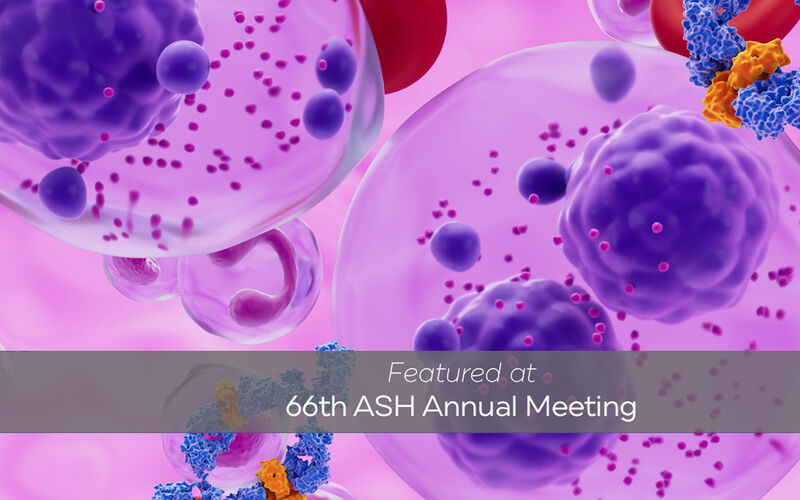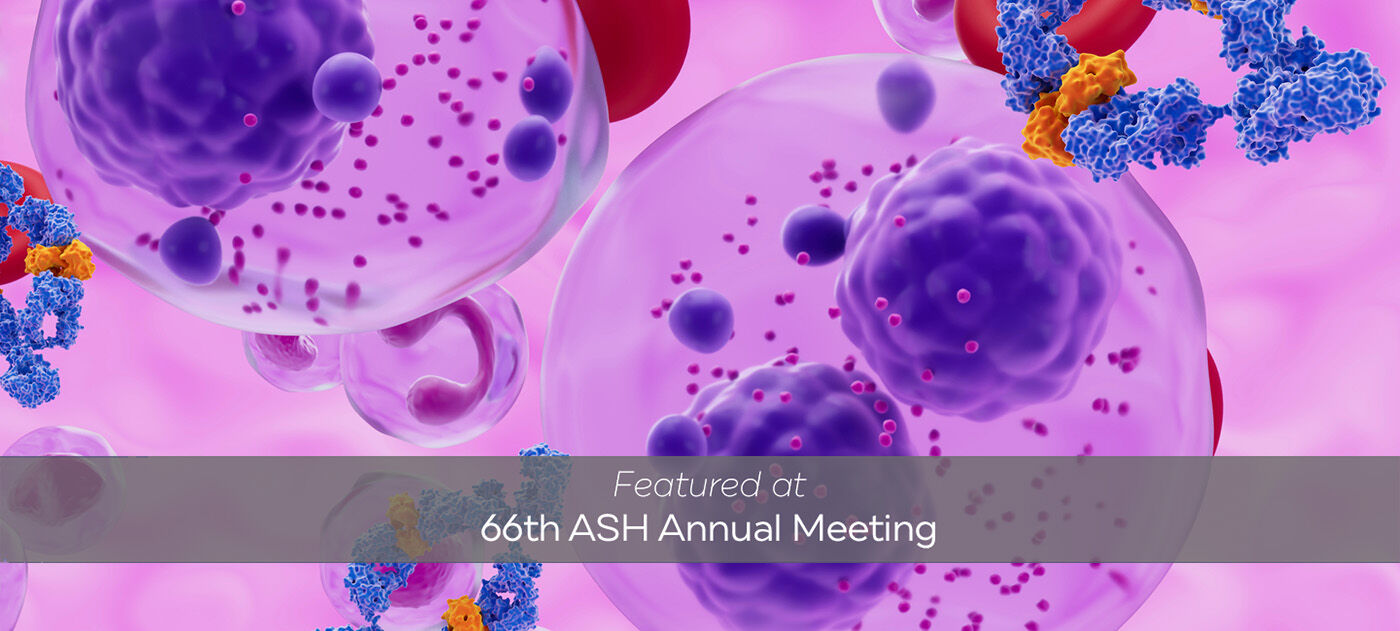Moffitt Study Explores Key Risk Factors To Better Personalize CAR T-Cell Therapy
A new study led by Doris Hansen, MD, and Lauren Peres, PhD, from Moffitt Cancer Center explores how pretreatment biomarkers and disease burden impact the risk of immune-related toxicities and the likelihood of achieving a durable response in patients with relapsed/refractory multiple myeloma treated with a type of CAR T-cell therapy called idecabtagene vicleucel (ide-cel).
This research was presented at the 66th annual meeting of the American Society of Hematology in San Diego.
The study highlights the importance of understanding how factors like disease burden in the bone marrow and inflammatory biomarkers influence the development of toxicities such as cytokine release syndrome and immune effector cell-associated neurotoxicity syndrome in patients undergoing CAR T-cell therapy. It also examines how these factors correlate with the probability of achieving a durable response — a response where the patient remains disease free for an extended period following treatment.
“We have confirmed that patients with a higher disease burden or more inflammation are at greater risk for experiencing immune-related toxicities,” Hansen said. “Our study provides valuable insights that could help physicians take preventive measures to manage these toxicities and improve overall patient outcomes.”

CAR T-cell therapy (chimeric antigen receptor therapy), including ide-cel, is a treatment where a patient’s T cells are genetically modified to recognize and attack cancer cells. FDA approved in 2021, ide-cel has demonstrated high efficacy in treating advanced multiple myeloma. However, this treatment comes with potential risks, including cytokine release syndrome, which causes high fevers, and immune effector cell-associated neurotoxicity syndrome, which can result in neurological symptoms like confusion and delirium.
In this study, cytokines — immune system signaling molecules — were carefully examined before and after treatment to see how they related to the risk of toxicities and treatment responses.
“We observed that patients with higher baseline and peak levels of certain inflammatory markers, such as ferritin and IL-6, had an increased risk for these toxicities,” Hansen said. “Interestingly, younger patients with these higher inflammation levels were particularly at risk.”
The study also identified key pretreatment biomarkers associated with better long-term responses. Patients with more favorable bone marrow profiles, including higher levels of certain immune cells, were more likely to achieve durable responses, meaning they lived longer without disease progression.
Additionally, patients who had a greater increase in CAR T cell numbers after treatment were more likely to have a better response, showing that having more of these cells helps fight the cancer more effectively.
“This research is crucial for personalizing ide-cel therapy,” said Peres, co-author of the study. “By understanding the factors that influence both toxicities and durable responses, physicians can better tailor treatments to each patient’s unique profile.”
The findings have important implications for clinical decision-making. By identifying patients who may be at higher risk for toxicities or who may need more intensive monitoring or adjunctive therapies for suboptimal response, the study aims to improve the safety and efficacy of CAR T-cell therapy for multiple myeloma. Physicians can now better anticipate risks and take steps to optimize treatment outcomes, ultimately improving patient care.




